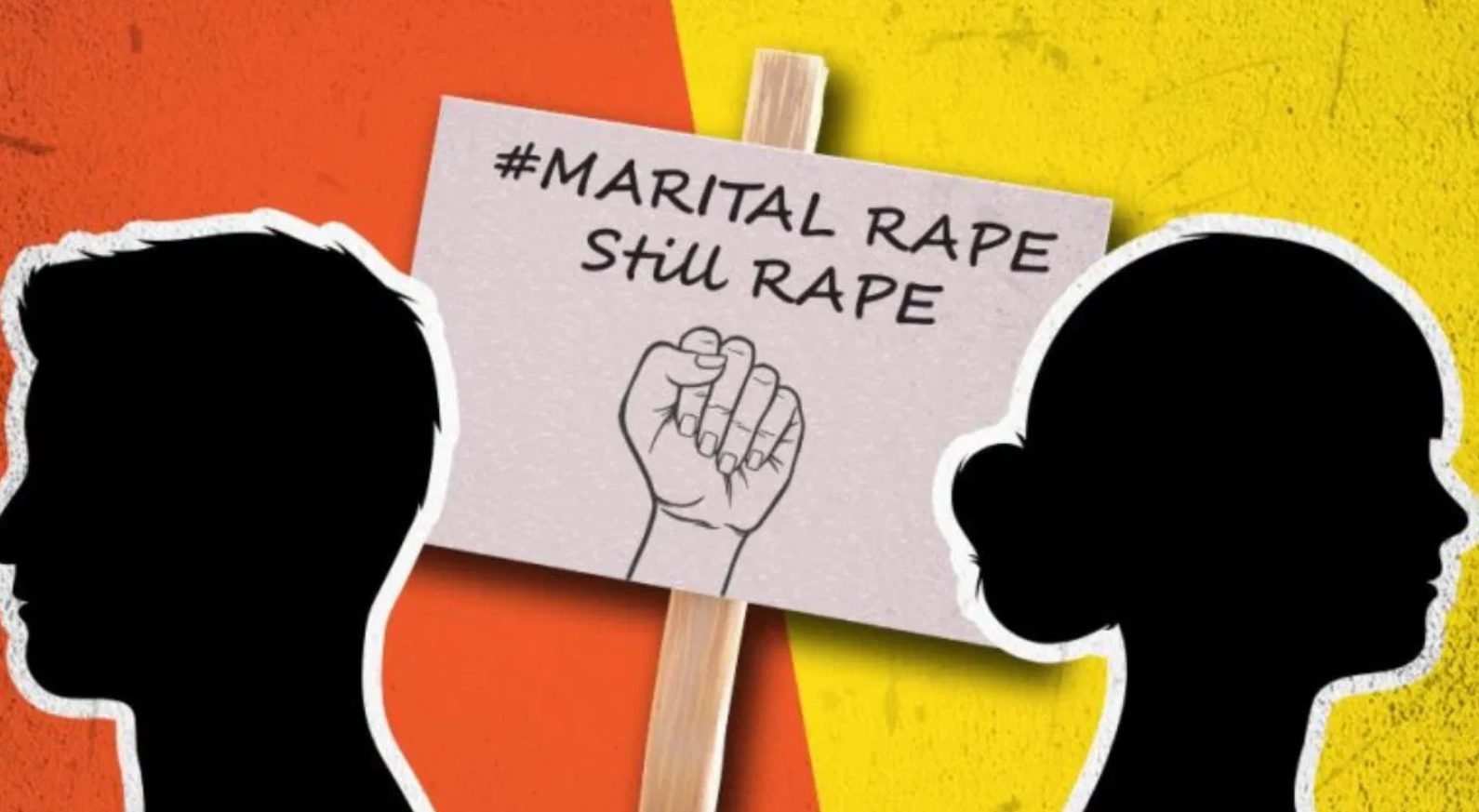From March 14, the Supreme Court will begin hearing a series of petitions seeking to criminalise marital rape.
What exactly is Marital Rape?
- The act of having sexual relations with one’s spouse without her consent is known as marital rape.
- Domestic violence and sexual abuse have similar manifestations.
- It is frequently a chronic form of violence for the victim that occurs within abusive relationships.

Status in India
- Historically regarded as a spouse’s right, many societies around the world now consider this to be rape.
- Marital rape is not a criminal offence in India (as protected under IPC section 375).
- India is one of fifty countries that has not yet made marital rape illegal.
Reasons for disapproval of this concept
- The unwillingness to define and prosecute non-consensual sex between married couples has been attributed to:
- Traditional marriage perspectives
- Religious doctrine interpretations
- Male and female sexuality concepts
- Cultural expectations of a wife’s subordination to her husband
- It is widely held that a husband cannot be held liable for any sexual act committed by himself against his lawful wife because they have mutual matrimonial consent.
Why should it be considered a crime?
- Rape by a spouse, partner, or ex-partner is more frequently associated with physical violence and sexual mutilation.
- Marital rape has been shown in studies to be more emotionally and physically damaging than rape by a stranger.
- Marital rape may occur as a result of an abusive relationship.
- Revenge: Furthermore, marital rape is rarely a one-time occurrence, but rather a repeated, if not frequent, occurrence.
- Women’s Obligation: In the case of marital rape, the victim frequently has no choice but to continue living with their spouse.
Violation of fundamental rights
- Marital rape is considered a violation of the freedom of expression guaranteed by Article 14 of the Indian constitution, which guarantees equal protection under the law to all people.
- It violates married women’s right to privacy and bodily integrity, which are aspects of their right to life and personal liberty under Article 21 by denying them an effective penal remedy for forced sexual intercourse.
Prosecutors face difficulties in prosecuting marital rape.
- Inadequate awareness: A lack of public awareness, as well as reluctance or outright refusal of authorities to prosecute, is widespread throughout the world.
- Gender roles: Furthermore, gender norms that place wives in subservient roles to their husbands make it more difficult for women to detect rape.
- Acceptability of the concept: Another issue stems from existing social norms.
Present regulations in India
- Indian Penal Code criminalizes rape in most cases, although marital rape is not illegal when the woman is over the age of 18.
- Until 2017, however, men married to minors aged 15 to 18 could not be convicted of rape.
- Marital rape of an adult wife who is unofficially or officially separated is a criminal offence punishable by 2 to 7 years in prison; it is not covered by standard rape laws, which allow for the death penalty.
- Other married women who have been subjected to such crime by their husband may seek financial restitution under the Protection of Women From Domestic Violence Act (2005).
- They also have the right to remain in their marital household if they wish, or to seek help from shelters or other organisations.
- In this case, however, marital rape is still not a criminal offence and is only a misdemeanour.
Arguments against criminalization
- Subjective: It is difficult and subjective to determine whether or not consent was obtained.
- Misuse Prone: If marital rape is criminalised without adequate safeguards, it, like the current dowry law, could be abused by disgruntled wives to harass and torture their husbands.
- Judiciary’s burden: It will increase the burden on the judiciary, which could otherwise be used for more important causes.
Way forward
- The legalisation of marital rape recognises the woman’s right to self-determination (i.e., control) over all aspects of her body.
- In the absence of a concrete law, it is always difficult for the judiciary to rule on the issue of domestic rape in the absence of solid evidence.
- The primary goal of marriage is procreation, and divorce is sometimes sought on the grounds of non-consummation of marriage.
- The judiciary must balance the rights and duties of both partners before issuing a final interpretation.
Source: https://www.thehindu.com/news/national/supreme-court-to-hear-petitions-relating-to-criminalisation-of-marital-rape-from-march-14/article66382195.ece#:~:text=The%20Supreme%20Court%20on%20Monday,its%20response%20in%20an%20affidavit.
